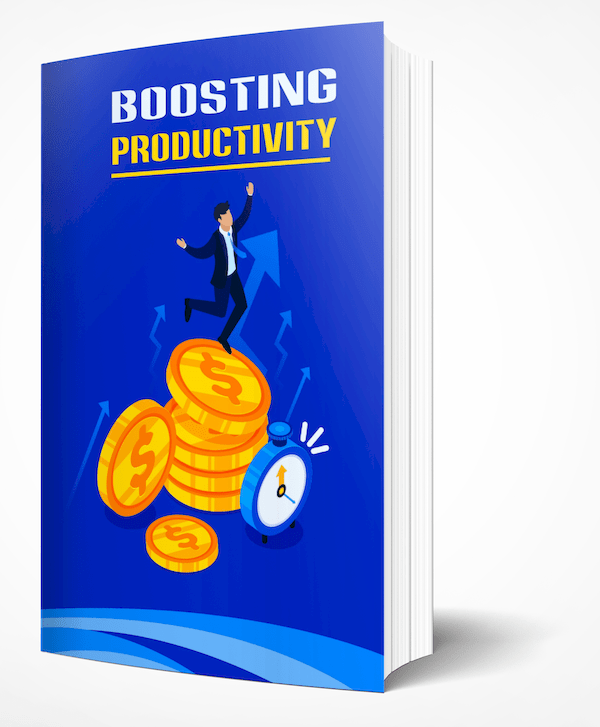Supercharge Your Productivity
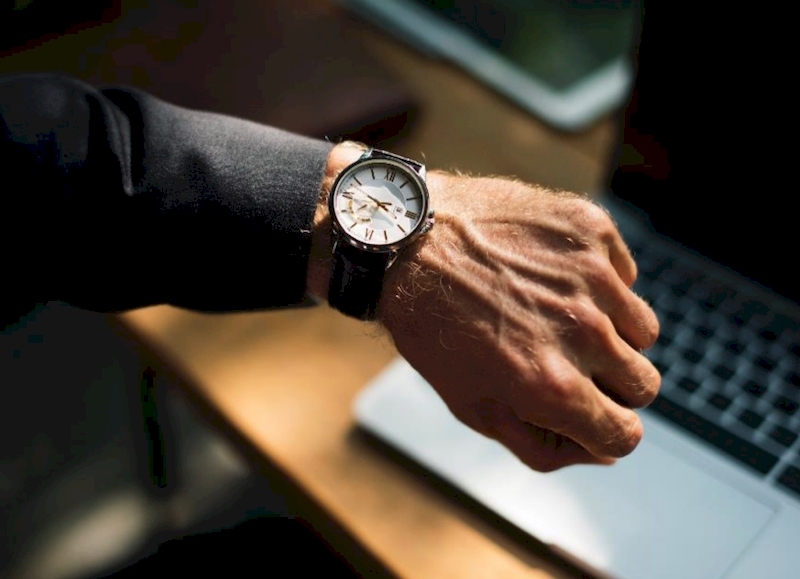

High productivity is a major goal for many people because more things can get done if you are in a high-productivity environment. While this concept may seem simple, to fully understand what it means to increase productivity, the definition cannot be taken literally. You actually must develop a more robust understanding of this concept and use it to your advantage fully.
In simple terms, high productivity means putting out products more quickly or completing tasks at a higher speed than before. Theoretically, it made sense -the more products someone produces or services the person finishes, the more positive results come in, making increased productivity a high priority for many workplace environments.
However, there are some things that studies say cause your productivity at work to plummet, such as an unfavorable environment, distractions, and plain old procrastination.
You cannot always control your environment, but the good news is you can control what you get done. Plus, you can learn from others to be even more productive. There are probably more direct ways to help your productivity increase, such as a conducive environment or closing the Facebook tab on your browser. Still, these are small hacks that only do so much. There are more meaningful ways to be your best. And you can learn these skills by taking some cues from the world’s most successful people.
Have Big Goals in Mind
Firstly, you can set big goals and then act to accomplish them fully. Facebook founder Mark Zuckerberg is a master at this, making room each year for a new challenge, which he says allows him to “learn new things and grow outside my work at Facebook.” And it pays! He’s now fluent in Mandarin and is meeting new people all the time.
Looking at it backward can help, too, as Amazon’s Jeff Bezos does. He makes room for big goals by starting with the customers' needs and working back to build skills to get that work done faster. As Bezos said, “We learn whatever skills we need to service the customer. We build whatever technology we need to service the customer.”

Give Each Day A Theme
Try copying CEO Jack Dorsey for this. When splitting his time between Square and Twitter, he stays productive by giving each day a theme -Mondays for management, Tuesdays for products, etc. As he explains, “There is interruption all the time, but I can quickly deal with an interruption and then know that it’s Tuesday, I have product meetings, and I need to focus on product stuff.”
Another tip you can use is the “no-meeting Wednesdays.” Facebook co-founder Dustin Moskovitz believes that this gives him and his team a reasonable amount of time each week for “focused, heads-down work.”
Set Limits

You can only spend so much time focusing on something. After that, it’s time to move on to the next important thing. For example, former Nissan CEO Carlos Ghosn only allocates one and a half hours to a single-purpose, non-operational meeting, with half of the time for presentations and the other half for discussions.
Another thing you can limit is the length of your emails. The Facebook COO, Sheryl Sandberg, says she responds to every single work email, but she saves time by keeping the responses short. “I would rather give a short, quick, incomplete answer than wait and do it better,” she says.
Deep Work Zone
Focus, focus, focus. This is perhaps the most important productivity secret. Bill Gates would set time for Deep Work, where he would allocate time each week to do his most challenging work without any distractions –no stopping, not even for sleep. Cal Newport, author of the book “Deep Work,” said, “Deep work is important … not because distraction is evil, but because it enabled Bill Gates to start a billion-dollar industry in less than a semester.”
Streamline Decisions
Jeff Bezos makes a lot of decisions every day. Since this can be time-consuming, he’s developed a four-step process for navigating his business more quickly. First, One-Size-Fits-All decisions are a no-no. “Many decisions are reversible, two-way doors,” he writes in his letter to shareholders. “Those decisions can use a lightweight process.” Second, make the decision when you are at 70% of your intended information. “If you wait for 90% … you’re probably slow,” he writes.
Disagree and commit. “This phrase will save a lot of time,” he writes. “If you have a conviction on a particular direction even though there’s no consensus, it’s helpful to say, ‘Look, I know we disagree on this, but will you gamble with me on it? Disagree and commit?’ By the time you’re at this point, no one can know the answer for sure, and you’ll probably get a quick yes.”
And fourth, address the real misalignments early and focus on them immediately. “Sometimes teams have different objectives and fundamentally different views,” Bezos writes. “They are not aligned. No amount of discussion, no number of meetings will resolve that deep misalignment. Without escalation, the default dispute resolution mechanism for this scenario is exhaustion.”
Get To Work Before Everyone Else
The early bird catches the worm. Try starting work before everyone wakes. Like 4 am like Sallie Krawcheck, CEO of the digital financial platform Ellevest. The reason is “The most precious commodity in business is time. And I find I am most productive when I balance the time that I spend with others with blocks of time during which I can think, write, and —my favorite — build earnings models,” she writes.
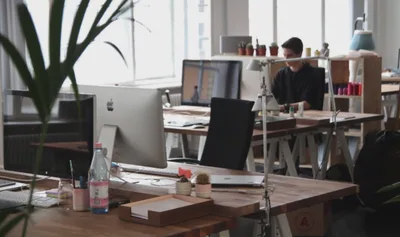
She further elaborated that at this time, “My mind is clear, not yet caught up in the multiple internal conversations that we all conduct with ourselves once we gear up for our first meeting of the day. And there’s a peace that comes from knowing that my family is all in bed and safe upstairs while I work. It is at this time of day that I often have a rush of ideas (some of them are good).”
Protect Your Time
Instead of starting the day with essential tasks, Keller Williams Realty founder Gary Keller blocks out the first few hours of his day to work on his most important task for the year —his “one thing.”
Because this one thing, when tackled, will make everything easier to do or unnecessary. Keller has used this to write books and grow his company to the largest real estate franchise. Keller also believes that until this one thing is done, anything else can impair it. “The key is time. Success is built sequentially. It’s one thing at a time,” he writes in “The One Thing: The Surprisingly Simple Truth Behind Extraordinary Results.”
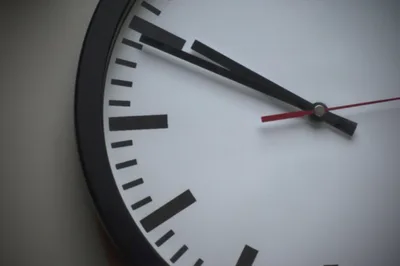
Close Virtual Doors
Open work environments open up many good possibilities but also can hinder productivity with unnecessary distractions and interruptions. Michael Pryor, the former CEO of Trello, encourages workers to close virtual doors by turning off Slack and email and putting a Post-It note on their desk that says “heads down.”
Interruptions are weird. They leech time from important projects and take a while to recover. “Every time you switch contexts, there’s this huge cost associated with that,” Pryor said in an interview with time. “Our time is limited, essentially. Your trick is to be able to ration that resource for all the things you need to do, and that’s the hardest part of being productive.”

Separate Work And Personal Life
Separating work and personal life may seem counterintuitive or even obvious to some, but it’s nonetheless as important as anything. YouTube CEO Susan Wojcicki makes being home in time for dinner with family a priority. Leaving the office on time helps her consolidate her work and get it done more rapidly, so when she is home, she can focus on her family without any distractions
“We try to have the rule not to check email between 6 pm and 9 pm, because if you are on your phone, then it’s hard to disconnect,” Wojcicki said in an interview with the Wall Street Journal.
Pulling the plug when the time comes can help you stay productive, creative and pursue success a surety. “[Success] is not based on the number of hours that you’ve worked,” Wojcicki says. “If you are working 24/7, you’re not going to have any interesting ideas.”
Clear Out Your Inbox Everyday
“Email is unidirectional—anyone, at any time, can go to your inbox without permission, invitation or consideration, Elliot Weissbluth, CEO of HighTower, writes on LinkedIn. “Empowering the world to demand a thin slice of your attention is more than unfair—it’s a recipe for constant distraction.”
He uses three rules to simplify things and keep him focused and productive.
Unsubscribe from newsletters. It takes more time than simply deleting but saves hours every year. Delete and completely forget about it. “When in doubt, delete. If it’s that important, someone will follow up with you. Then respond to what you can and move the rest to the recycle bin,” Weissbluth writes. Don’t bother filing. Use a good search tool to scan your folders and find things you need instantly.
“If you do nothing else but these three things, your inbox will be a lot leaner,” he writes. “Whatever messages are left become a to-do list of the items that need your care and attention. Keep this list short, between two and five items, or what you can hope to achieve on any given day. Get those items done, and you’ve just reached Inbox Zero.”
It might seem unorthodox that some steps make you seem less productive. But again, it is more than simply cranking out more than you usually do. Being productive is not only being efficient. It also means you are effective in your work, where you take steps to turn problems into solutions that make extra work unnecessary completely.
Want To Master Time Management
Find out here by learning more about the To-Do Scout Time Management Planner
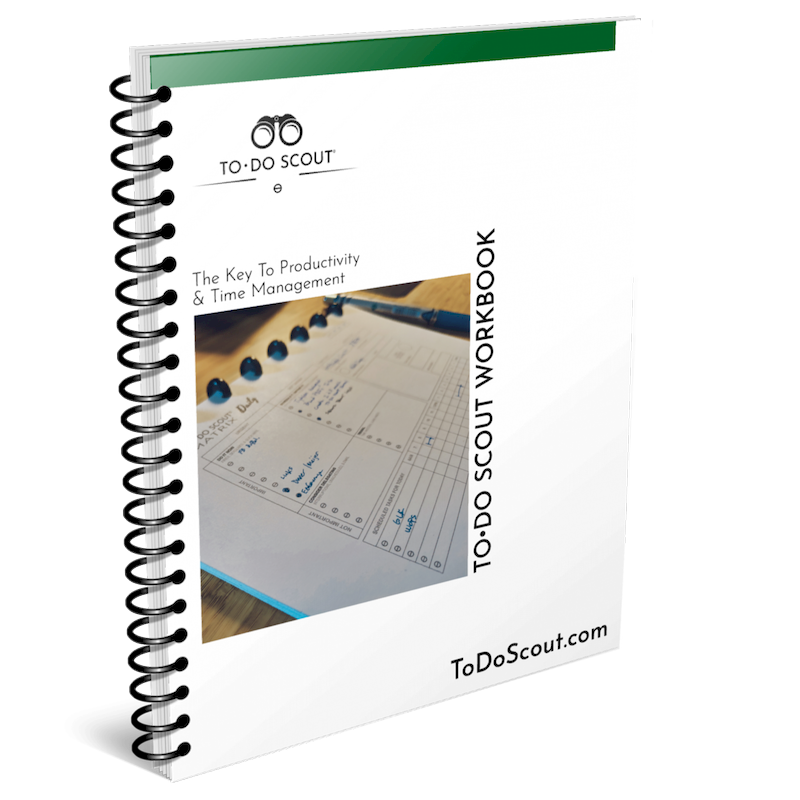
Word Cloud Weight: ; ; ; ; ;

